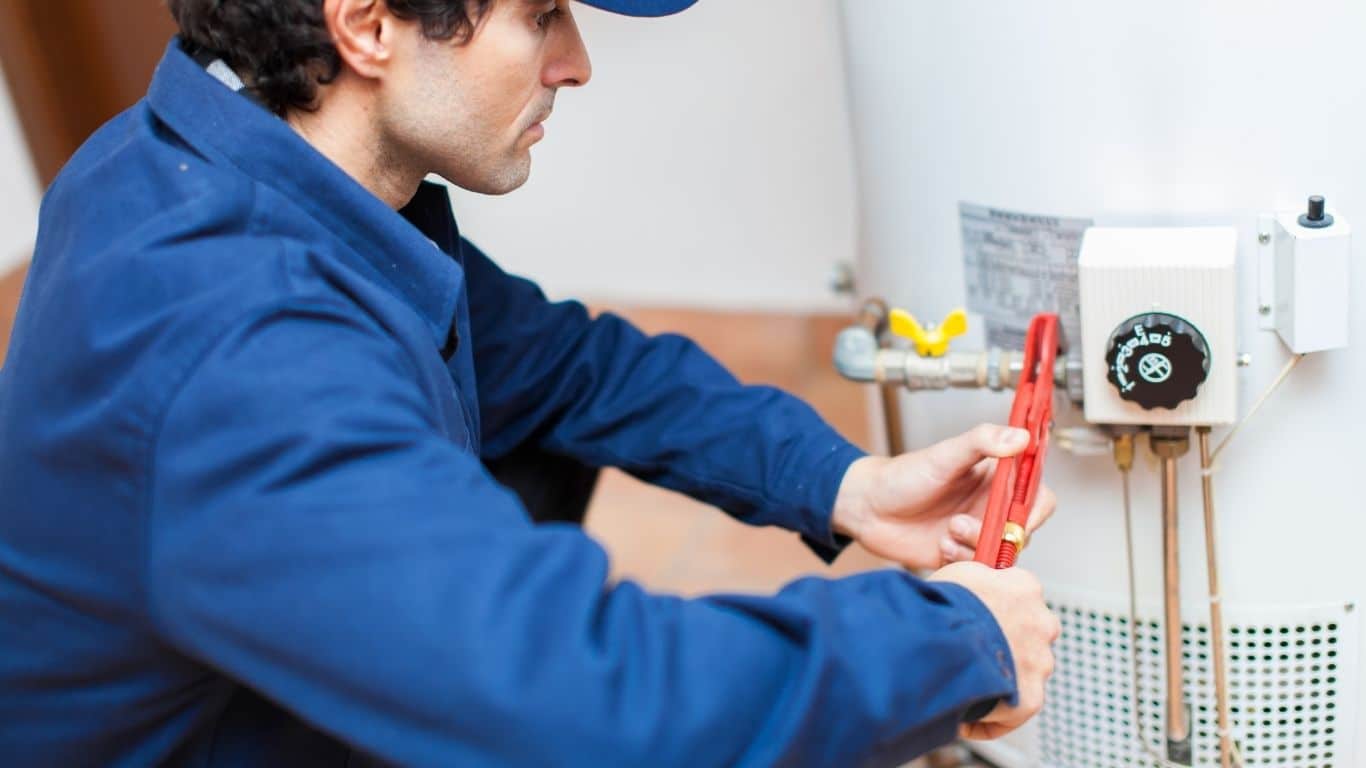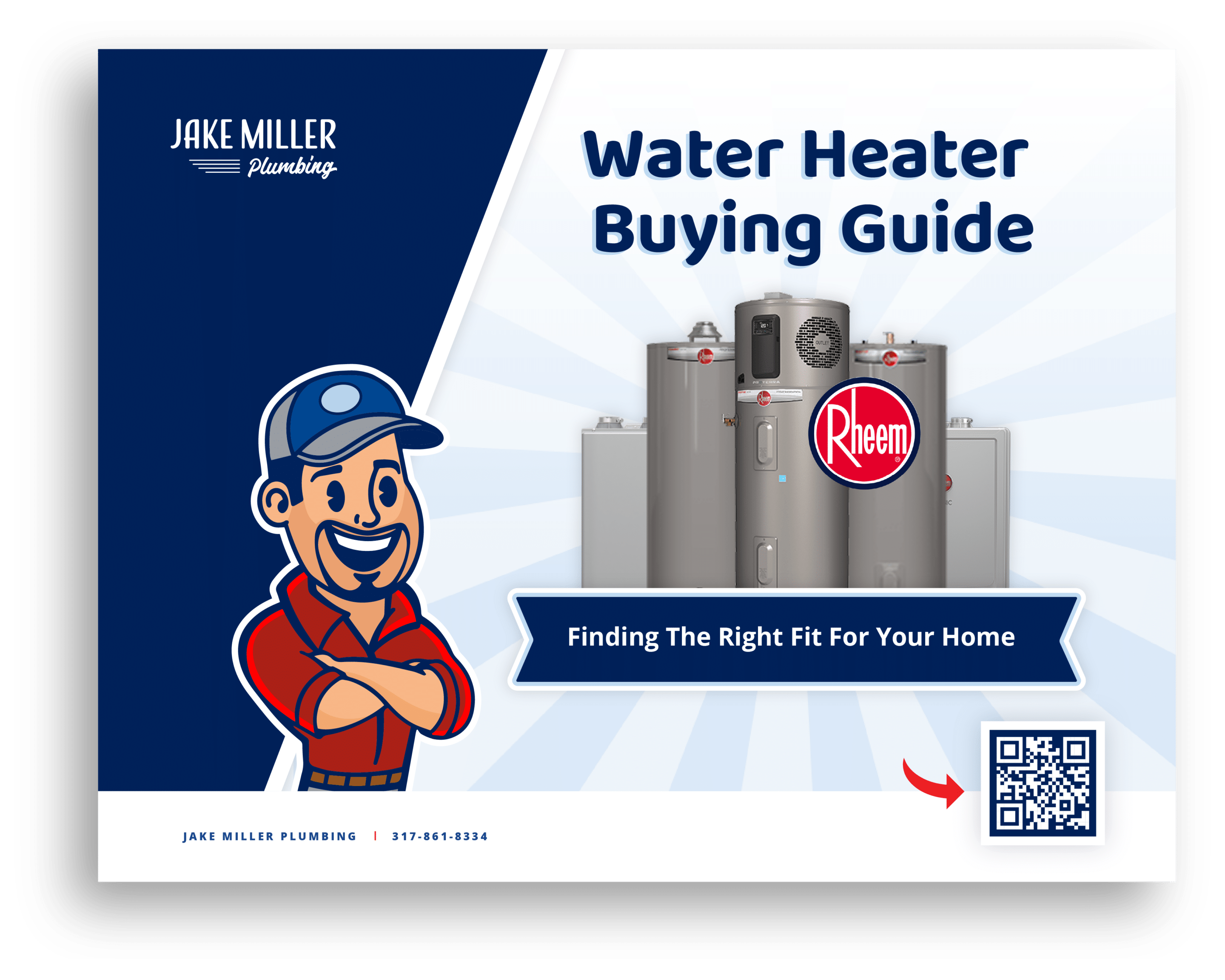If you’ve ever asked, “Do I really need to flush my water heater?” — you’re not alone. It’s one of the most common questions we get from homeowners, and it’s a smart one.
The short answer: yes, flushing your water heater is an important part of keeping your plumbing system in good shape. But the real question is: how often should you flush it, how do you know when it’s time, and what actually happens if you don’t?
Let’s break it all down — in plain English.
What Does “Flushing a Water Heater” Actually Mean?
Flushing your water heater means draining all the water out of the tank to remove built-up sediment, then refilling it with clean water.
Sediment is the sand, minerals, and debris that settle at the bottom of your water heater over time. It comes from your city’s water supply — and it’s totally normal. But when that sediment builds up too much, it causes real problems:
- Your water heater has to work harder to heat water
- Your energy bills go up
- The tank wears out faster
- You may start hearing banging or popping sounds
- Worst case, it leads to tank failure and leaks
How Often Should You Flush a Water Heater?
Most manufacturers recommend flushing a water heater once a year. But the right frequency can vary depending on your home’s water quality.
Here in Indiana, we tend to have moderately hard water, which means minerals like calcium and magnesium can build up a little faster. So for most homeowners in our area, once a year is a solid rule of thumb.
If you have a water softener, you might be able to go a little longer. But if you’ve never flushed your water heater and it’s been more than 2–3 years? You’re overdue.
What Are the Signs That It’s Time to Flush?
Here are a few signs your water heater may need to be flushed:
- Your water takes longer to heat up
- You hear banging, knocking, or popping sounds from the tank
- Your hot water runs out faster than it used to
- Water from the tap looks cloudy or has a metallic smell
- The bottom of the tank feels very hot to the touch, even when not in use
None of these are guaranteed signs, but they’re good indicators that sediment may be building up.
What Happens If You Don’t Flush Your Water Heater?
Skipping regular flushes doesn’t just affect performance — it can shorten the life of your water heater. Here’s what can go wrong:
- Reduced efficiency: Your heater works harder, using more energy
- Overheating: Sediment can trap heat at the bottom of the tank
- Corrosion: Minerals can accelerate rusting of the tank lining
- Leaks: Excess buildup can cause stress cracks or rust holes
- Total tank failure: Once that happens, replacement is your only option
And replacing a water heater isn’t cheap — especially if it fails without warning.
Can You Flush a Water Heater Yourself?
Yes, many homeowners flush their water heaters themselves. Here’s a simplified step-by-step:
- Turn off the power or gas to the water heater
- Shut off the cold water supply
- Connect a garden hose to the drain valve at the bottom
- Open the valve and let the tank drain fully
- Once it’s empty, turn the water back on briefly to flush out any remaining sediment
- Close the valve, remove the hose, refill the tank, and restore power
⚠️ Important: If your tank hasn’t been flushed in years, doing it yourself can stir up hardened sediment that clogs valves or causes leaks. In that case, it’s safer to call a pro.
When Should You Call a Plumber to Flush It?
If any of these apply, call in a plumber:
- Your water heater is over 5 years old and has never been flushed
- You’re hearing loud noises from the tank
- You’re not comfortable working with water or gas connections
- You’ve tried flushing, but still have issues with performance
A plumber can flush the tank more thoroughly and check the anode rod and burner at the same time — making sure the system is truly in good shape for the colder months ahead.
When Is the Best Time of Year to Flush It?
Early fall is the perfect time to flush your water heater.
Why? Because you’ll be using it more heavily in the months ahead — longer showers, colder tap water coming in, and holiday guests in and out of the house. You want your system running efficiently before the busy season hits.
If your water heater has been running all summer without a check-in, now’s a smart time to give it a reset.
Want to Get It Done Without the Hassle?
If flushing your water heater sounds like one more thing on a never-ending to-do list — we get it.
At Jake Miller Plumbing, we handle this kind of maintenance every day. We’ll flush the tank, inspect the system, and make sure you’re set for the season ahead.
Schedule your service visit today.
FAQ Section
How often should I flush my water heater?
Most homeowners should flush their water heater once a year. In areas with hard water, like much of Indiana, flushing yearly helps prevent sediment buildup and keeps your system running efficiently.
What happens if you don’t flush your water heater?
Skipping regular flushes leads to sediment buildup, which can reduce water pressure, increase energy use, cause strange noises, and shorten the life of your water heater.
How do I know if my water heater needs to be flushed?
Signs include popping or banging noises, cloudy water, slow heating, or reduced hot water supply. These may indicate a buildup of sediment inside the tank.
Can I flush my water heater myself?
Yes, it’s possible to flush a water heater yourself by turning off the power, draining the tank through the drain valve, and flushing it with clean water. However, if it hasn’t been flushed in years, it’s smart to call a professional to avoid damaging valves or stirring up hardened sediment.
When is the best time of year to flush a water heater?
Early fall is ideal. You’ll be using more hot water as temperatures drop, and flushing now helps your system work more efficiently before it’s under heavy seasonal demand.

